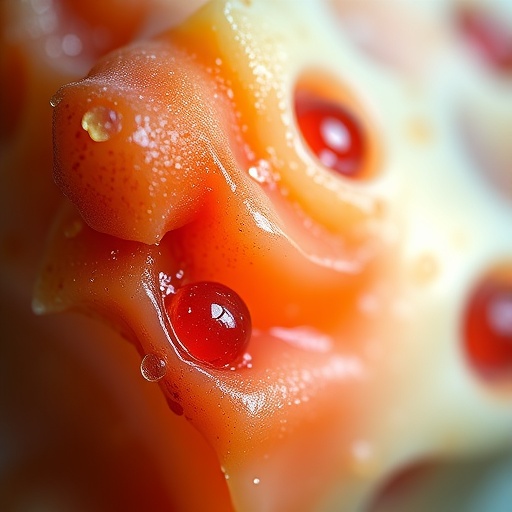Mohs micrographic surgery has emerged as a prominent technique in the realm of dermatologic surgery, gaining recognition for its efficacy in treating skin cancers. This innovative procedure, developed by Dr. Frederic Mohs in the 1930s, has continuously evolved, becoming a vital tool in the fight against non-melanoma skin cancers. The narrative review by Maciejewska, Bętkowska, Czuwara, and colleagues delves deep into the current practices and trends related to Mohs micrographic surgery, providing insightful observations that are crucial for both practitioners and patients.
One of the most significant advantages of Mohs micrographic surgery is its ability to maximize cancer removal while preserving as much healthy tissue as possible. The technique involves the surgical excision of cancerous skin, followed by immediate microscopic examination of the margins. This immediate feedback allows surgeons to confirm whether the cancer has been completely removed before closing the wound. This strategy minimizes the chances of recurrence, offering high cure rates for basal cell carcinoma and squamous cell carcinoma, the most common types of skin cancer.
The review draws attention to the growing body of evidence supporting the superior outcomes associated with Mohs micrographic surgery compared to traditional excisional surgery. In several studies cited, Mohs surgery consistently yields lower recurrence rates, which can be especially crucial for patients whose lesions are located on the face or other cosmetically sensitive areas. The meticulous nature of this approach allows for precise excision, accommodating the complex topography of facial structures and preserving aesthetic integrity.
Interestingly, advancements in technology are playing a transformative role in Mohs micrographic surgery. The review highlights the integration of digital imaging and 3D mapping techniques, which have the potential to streamline the surgery process. These technologies facilitate more accurate margin assessment and help surgeons visualize the cancer’s extent, which may not always be evident through traditional methods. As these technologies are refined and adopted in clinical practice, they are expected to further enhance the efficacy and outcomes of Mohs micrographic surgery.
Moreover, the authors discuss the psychological impact of Mohs micrographic surgery on patients. The assurance of clear margins and a lower risk of recurrence can significantly alleviate the anxiety that often accompanies a skin cancer diagnosis. The narrative review emphasizes that, beyond the surgical success, the psychological well-being of patients should be an integral part of the treatment journey. Understanding this aspect can better inform how healthcare providers approach patient care in the context of skin cancer treatments.
Additionally, the review provides insight into the training and expertise required for practitioners performing Mohs micrographic surgery. It is imperative that surgeons undertake comprehensive training to master the technique, which combines both surgical and dermatopathological skills. This dual expertise not only elevates the quality of surgical outcomes but also empowers surgeons to build a rapport with their patients, ensuring that they feel supported throughout their treatment.
Emerging trends in Mohs micrographic surgery are also explored in the review, including the increasing focus on patient-centered care and the personalization of treatment plans. As the field moves forward, there is a growing acknowledgment that each patient’s situation is unique, necessitating a tailored approach that considers individual preferences and medical backgrounds. This personalization can influence decisions regarding anesthesia options, surgical techniques, and post-operative care, ultimately enhancing patient satisfaction and outcomes.
The collaborative aspect of Mohs micrographic surgery, wherein dermatologists, surgeons, and pathologists work closely together, is another key theme in the narrative review. The multidisciplinary approach not only strengthens communication among healthcare professionals but also improves the overall quality of care. This collaboration can lead to more comprehensive tumor mapping, better surgical planning, and ultimately, improved patient outcomes.
Notably, the economic implications of Mohs micrographic surgery are discussed in the review as well. While the initial costs may be higher than traditional excision due to the complexity and time-intensive nature of the procedure, the long-term cost-effectiveness is highlighted. The potential for reduced recurrence rates leads to fewer follow-up treatments and interventions, making Mohs surgery a financially prudent choice for both patients and healthcare systems in the long run.
Furthermore, the narrative highlights the importance of continued research in Mohs micrographic surgery. Ongoing studies are necessary to establish the long-term benefits and understand the enduring outcomes of various techniques and technologies. As additional data emerges, it will be crucial for practitioners to adapt their approaches based on the latest evidence, ensuring that patients receive the most effective and efficient care possible.
In conclusion, Maciejewska and colleagues offer a thorough examination of Mohs micrographic surgery, illuminating its significant impact on skin cancer treatment. The combination of advancing technologies, a patient-centered approach, and a commitment to multidisciplinary collaboration underscores the evolution of this surgical technique. As the field of dermatologic surgery continues to evolve, the insights provided in this narrative review will undoubtedly inform future practices and enhance the standard of care for patients facing skin cancer.
Subject of Research: Mohs Micrographic Surgery
Article Title: Mohs Micrographic Surgery: A Narrative Review of Current Practices, Emerging Trends, and Case-Based Insights
Article References:
Maciejewska, M., Bętkowska, A., Czuwara, J. et al. Mohs Micrographic Surgery: A Narrative Review of Current Practices, Emerging Trends, and Case-Based Insights.
Adv Ther (2025). https://doi.org/10.1007/s12325-025-03354-w
Image Credits: AI Generated
DOI:
Keywords: Mohs micrographic surgery, skin cancer, treatment, dermatologic surgery, patient care, technology advancements, surgical outcomes




